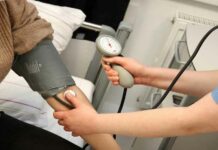Moderna, Inc., a biotechnology company pioneering messenger RNA (mRNA) therapeutics and vaccines, announced that it has entered into an additional agreement with Lonza to support drug substance manufacturing for its global supply chain. The agreement will establish a new production line at Lonza’s Geleen site in the Netherlands, contributing to the supply of an additional 300 million doses of Moderna’s updated booster variant vaccine candidate, if authorized, per year, at a 50 µg dose.
In addition to previously announced investments in drug substance manufacturing with ROVI in Granada, Spain, the Company now expects to be able to supply the equivalent of 600 million 50 µg doses per year from production within the European Union. Both new drug substance lines in the European Union are expected to be operational before the end of 2021.
“We thank our manufacturing partners for their work and their commitment and are proud to be building on the strong foundations we have established with Lonza to further increase our manufacturing capabilities in Europe,” said Juan Andres, Moderna’s Chief Technical Operations and Quality Officer. “This additional production will help us continue to scale up our production as we continue to develop best-in-class variant boosters so we can help end this pandemic as fast as possible.”
Moderna already works with ROVI and Recipharm (France) for fill/finish of COVID-19 Vaccine Moderna in Europe and recently entered into a Manufacturing Services and Supply Agreement with Samsung Biologics in South Korea to provide additional large scale, commercial fill/finish services. In the U.S., the Company also works with Lonza Portsmouth for drug substance production, and partners with Catalent, Baxter BioPharma Solutions, Sanofi and Thermo Fisher Scientific for fill/finish services. Additional manufacturing investments follow the Company’s commitment to increase production in late 2021 and early 2022 to support global supply of its COVID-19 vaccine.
When completed, the increased production, in addition to other investments at its owned and partnered manufacturing facilities, is expected to also result in an increase in safety stock of raw materials and finished product used to deliver committed volumes.
About the COVID-19 Vaccine Moderna
The COVID-19 Vaccine Moderna (referred to in the U.S. as the Moderna COVID-19 Vaccine) is an mRNA vaccine against COVID-19 encoding for a prefusion stabilized form of the Spike (S) protein, which was co-developed by Moderna and investigators from the National Institute of Allergy and Infectious Diseases’ (NIAID) Vaccine Research Center. The first clinical batch, which was funded by the Coalition for Epidemic Preparedness Innovations, was completed on February 7, 2020 and underwent analytical testing; it was shipped to the National Institutes of Health (NIH) on February 24, 42 days from sequence selection. The first participant in the NIAID-led Phase 1 study of the Moderna COVID-19 Vaccine was dosed on March 16, 63 days from sequence selection to Phase 1 study dosing. On May 12, the U.S Food and Drug Administration granted the Moderna COVID-19 Vaccine Fast Track designation. On May 29, the first participants in each age cohort: adults ages 18-55 years (n=300) and older adults ages 55 years and above (n=300) were dosed in the Phase 2 study of the vaccine. On July 8, the Phase 2 study completed enrolment.
Results from the second interim analysis of the NIH-led Phase 1 study of the Moderna COVID-19 Vaccine in the 56-70 and 71+ age groups were published on September 29 in The New England Journal of Medicine. On November 30, 2020, Moderna announced the primary efficacy analysis of the Phase 3 study of the vaccine conducted on 196 cases. On November 30, 2020, the Company also announced that it filed for Emergency Use Authorization with the U.S. FDA and a Conditional Marketing Authorization (CMA) application with the European Medicines Agency. On December 18, 2020, the U.S. FDA authorized the emergency use of the Moderna COVID-19 Vaccine in individuals 18 years of age or older. Moderna has also received emergency (or other conditional, interim or provisional) authorization for use of its COVID-19 vaccine from health agencies in Canada, Israel, the European Union, the United Kingdom, Switzerland, Singapore, Qatar, Taiwan, the Philippines, Thailand, Brunei, Paraguay, Japan, South Korea an Emergency Use Listing (EUL) from the World Health Organization (WHO).
About Moderna
In 10 years since its inception, Moderna has transformed from a science research-stage company advancing programs in the field of messenger RNA (mRNA), to an enterprise with a diverse clinical portfolio of vaccines and therapeutics across six modalities, a broad intellectual property portfolio in areas including mRNA and lipid nanoparticle formulation, and an integrated manufacturing plant that allows for both clinical and commercial production at scale and at unprecedented speed. Moderna maintains alliances with a broad range of domestic and overseas government and commercial collaborators, which has allowed for the pursuit of both groundbreaking science and rapid scaling of manufacturing. Most recently, Moderna’s capabilities have come together to allow the authorized use of one of the earliest and most-effective vaccines against the COVID-19 pandemic.
Moderna’s mRNA platform builds on continuous advances in basic and applied mRNA science, delivery technology and manufacturing, and has allowed the development of therapeutics and vaccines for infectious diseases, immuno-oncology, rare diseases, cardiovascular diseases and auto-immune diseases. Today, 24 development programs are underway across these therapeutic areas, with 14 programs having entered the clinic. Moderna has been named a top biopharmaceutical employer by Science for the past six years.


















